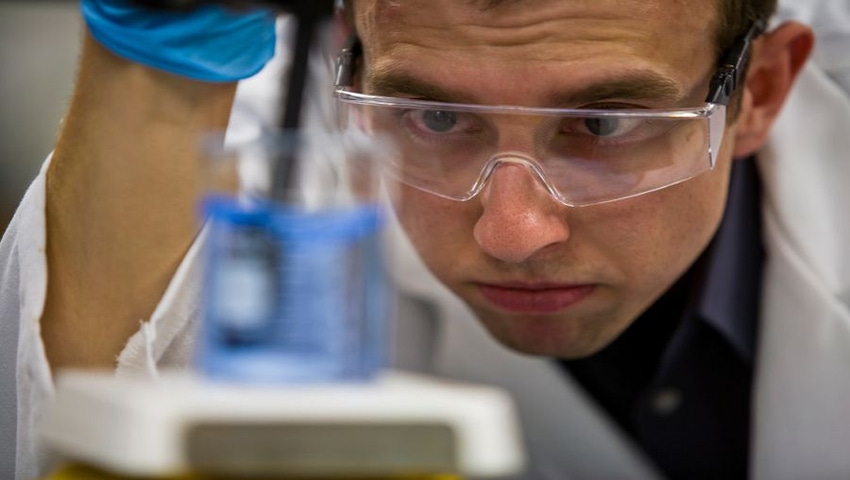Brand owners that work with contract labs to ensure quality need to select the laboratory wisely, qualify the lab and then challenge the lab’s results.
April 14, 2016

The dietary supplement industry is an industry of contractors. Own label distributors often utilize various contractors to manufacture products, another contractor to package and label products, and yet another contractor to hold and distribute product to consumers. Along the way, contract laboratories are employed by these contractors, and/or the own label distributors themselves, to perform physical, chemical and microbiological testing to establish that products meet quality requirements. Even when an own label distributor conducts most of these operations in-house, the sophistication and volume of testing necessary for dietary supplement ingredients and products means contract laboratories are still being routinely used to establish that product quality requirements are met.
FDA has taken notice and made it clear in numerous warning letters that regardless of who is performing the actual operations, the own label distributor is responsible for ensuring GMPs (good manufacturing practices) are followed in accordance to 21 CFR 111, lest the company be in violation of the Federal Food, Drug, and Cosmetic Act and the product be considered adulterated.
It is therefore critical that all contractors, including contract laboratories, are carefully selected and qualified for compliance to 21 CFR 111 GMPs by the own label distributors prior to use. Subpart J (Production and Process Control System: Requirements for Laboratory Operations) of the regulation dictates the laboratory must: establish and follow written procedures for laboratory operations, including written procedures for the tests and examinations conducted; use adequate laboratory facilities to perform testing and examinations; have laboratory control processes that are reviewed and approved by quality control (QC) personnel; identify and use appropriate scientifically valid test methods; and document all testing and examinations at the time of performance. In addition to these requirements, each subpart of 21 CFR 111 also has applicability to laboratory operations with the exception of Subparts L (Production and Process Control System: Requirements for Packaging and Labeling Operations) and M (Holding and Distributing).
Laboratory Selection
The purpose of using a contract laboratory is to use scientific expertise that is not available in-house. A large part of the laboratory selection should then include an assessment of laboratory personnel to ensure the appropriate education (chemistry, microbiology or other scientific discipline) is present for the types of tests or examinations that will be performed and that the laboratory has experience with laboratory operations in accordance to good laboratory practice (GLP) and good documentation practice (GDP).
Testing methodologies available at the laboratory must also be appropriate to the dietary supplement ingredient or product being tested. Multiple techniques with varying levels of sensitivity and confidence are frequently available to conduct a particular test, so the technique in use must be applicable to the sample type and capable of meeting the sample acceptance criteria. Furthermore, all test methods must be demonstrated to be scientifically valid for at least accuracy, precision, specificity and ruggedness. Contract laboratories employing compendial methods must, therefore, have a process for method verification. Test methods developed in-house will be validated to meet these same requirements.
It is also important to ascertain whether the contract laboratory is capable of meeting the logistical needs of the own label distributors or other contractor. This includes expected sample volumes and turnaround times given specific test costs. Details regarding the sample submission and shipping processes, as well as results reporting and notification processes should also be determined.
Contract Laboratory Qualification
The qualification of a contract laboratory is a multi-stepped, continuous process. The initial contract laboratory qualification should include the use of a detailed contract laboratory questionnaire, follow-up contract laboratory on-site audit, and ongoing challenge testing. A re-qualification should then be performed periodically thereafter to provide updates to the necessary qualification requirements. The frequency of the re-qualification will be determined based on a risk assessment of laboratory services.
The contract laboratory questionnaire is a self-assessment completed by the laboratory. Questions should assess the regulatory and audit history of the laboratory, as well as information on laboratory structure such as an organizational chart and key personnel education and experience. The most detailed portion of the questionnaire should be the evaluation of the laboratory quality system for compliance to 21 CFR 111. As dictated in Subpart J, this will include: the evaluation of written procedures; laboratory facility information; equipment and instrumentation qualification, calibration, and maintenance processes; critical laboratory control processes; management and use of test methods; and documentation systems. A final key component, which is specific to GMPs, is the investigatory system for deviations, out of specification (OOS) results, and corrective and preventive actions (CAPAs). All of the latter should be designed to ensure quality issues are investigated in a thorough, timely, unbiased, well-documented and scientifically sound manner.
On-site audits are essential to verify questionnaire information is accurate and that the practices (GMP, GLP and GDP), policies, processes and test methods indicated are being followed as documented. These audits should be completed prior to testing. A thorough and detailed written summary of observations noted during the audit will then be prepared by the auditor. This is the document that will be used to assign necessary CAPAs, demonstrate laboratory compliance, and assign the laboratory qualification status.
Ongoing challenge testing should be conducted to continually evaluate the overall performance of the contract laboratory, as well as provide an indirect assessment of the accuracy, precision, specificity and ruggedness of the test methods. It can also be used as a tool to avoid “dry-labbing," or the falsification of testing and/or test results. There are various types of challenge testing options that can be employed, including inter-laboratory testing, the use of replicates, fortification (spiked) samples and blind testing. For inter-laboratory testing, a single sample is portioned and submitted for testing to more than one contract laboratory simultaneously. The results obtained should be in agreement with one another, given the test method variability. Replicate samples, preferably at least three, are submitted for testing to a single laboratory to evaluate the method precision and laboratory reproducibility. The accuracy of the laboratory and test method are assessed using fortification samples that are submitted with a known concentration. In the case of blind testing, information about the expected results for a group of samples with known concentrations are not provided to the contract laboratory to verify accuracy and precision of the results.
A contract laboratory helps the brand owner ensure the quality of the dietary supplement product through testing. Select the laboratory wisely, qualify the laboratory using a detailed and thorough contract laboratory questionnaire and a rigorous follow-up on-site audit, and then challenge the results.
Tara Couch, Ph.D., is an analytical/organic chemist with more than 20 years of diverse laboratory and regulatory experience in academic, field, contract and manufacturing environments. She is a senior consultant with EAS Consulting Group (easconsultinggroup.com).
About the Author(s)
You May Also Like






.png?width=800&auto=webp&quality=80&disable=upscale)